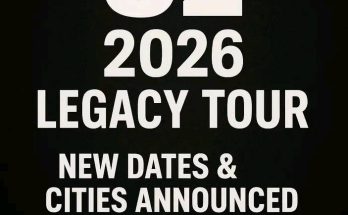Tua Tagovailoa’s recent response to criticism after Miami’s loss to the Indianapolis Colts cuts to something fundamental about sports criticism, media narratives, and what actually influences outcomes on the field. His line — “I don’t see any of what you guys are talking about … It doesn’t matter anyways, are they going to help us win the game?” — reveals what he believes is essential: performance, accountability, moving forward. With that in mind, it’s useful to examine what the media, fans, and his peers have said; what the facts of the game show; what pressures he faces; and how, in the end, the only things that truly matter are what you do in the next snap, the next drive, the next game.
First, what are people saying? After the Week 1 loss (33‑8) to the Colts, voices from all quarters have been sharply critical. Ex‑teammate Xavien Howard, now a Colt, said the Colts “knew the guy, he gets the ball out pretty quick. And once we take away his first read, I feel like it’s panic mode after that.” (ESPN) Howard claimed they disrupted Tua’s first read and that once that went away, Tagovailoa tried to force things or rushed throws. Laiatu Latu, a Colts defensive end, echoed that by saying you could “just tell with the big eyes and him getting flustered.” (Bleacher Report)
Media and fans on social media have also been unrestrained. There are posts questioning whether he is “wasting” the talents of receivers like Tyreek Hill and Jaylen Waddle with poor decisions, whether the coaching staff is extracting the most from him, whether the team needs to shake up the roster or maybe even consider a change at quarterback. (SI) There’s frustration not just over his stats that day — two interceptions, a fumble, low passing yardage — but over what many saw as lack of poise under pressure. (The Times of India)
Then there are internal perspectives. Coach Mike McDaniel called the performance “less than to be desired” for Tua. (The Sun) The coach admitted seeing things in practice and in preparation that they worked on, but did not see them executed in the game. He also pointed out that this loss exposed flaws. (ClutchPoints)
Tua’s response is interesting. He acknowledges where responsibility lies, says he knows what he needs to do, and tries to distinguish criticism that is fair (you mess up plays, you uproot mistakes) from what he sees as overstatements or narratives that don’t help: “wild comment … turn the ball over in bunches” is something he pushed back on. (Bleacher Report) He also expressed that the outside noise doesn’t really change what needs to happen. He seems to view the kinds of comments about panic mode or lack of execution as part of the landscape — maybe frustrating, maybe inaccurate in the moment, but not helpful to focus on if they don’t produce wins.
What do the facts of that game actually tell us? They tell us that Tua had a very rough day, both in terms of tangible box‑score statistics and in less measurable but equally critical things. Completion percentage and yardage were low — 14 of 23 for 114 yards nowhere near what a quality game plan would demand from a team aiming to compete at the top. (Bleacher Report) Turnovers (two interceptions + one lost fumble) played a big role, including giving the Colts extra opportunities. The Dolphins were dominated on multiple levels: the defense allowed a lot of yardage, the offense underperformed, there was lack of rhythm, the pressure got to him and in certain sequences he seemed to rush things — consistent with what Howard and others said. (Bleacher Report) There is also recognition that the coaching and the whole offense (including line play, play‑calling, receivers getting open, protection) bear responsibility. Tua is not alone in this. (Bleacher Report)
So on one hand, criticisms are grounded in observable shortcomings in that particular game. On the other hand, there is a tendency in media / fan reaction to amplify certain narratives: panic mode, lack of leadership, “wasting prime years” of receivers, etc., some based on cumulative past games, some based on what people expect of a player with Tua’s contract and pedigree.
Tua’s quote seems to be dismissing some of the speculation and narrative — not denying that mistakes happened, but pushing back on whether external commentary (especially negative or speculative) is relevant or helpful. “I don’t see any of what you guys are talking about … It doesn’t matter anyways, are they going to help us win the game?” is essentially a challenge: show me something that will move the needle. If commentary or criticism doesn’t lead to on‑field improvement, what’s its value? It’s a classic refrain in professional sports: external noise doesn’t change outcomes — only actions do.
There is also a psychological dimension: in high stakes sports, being subjected to criticism — especially when losses are brutal, expectations high — can weigh on players. But resilience, mental toughness, ability to focus only on what you can control, and to use criticism as fuel rather than distraction, often distinguish those who sustain high performance. Tua’s comments reflect that mindset: he is downplaying the criticisms (or perceptions) to stay focused on what matters. He is implicitly saying, “Judgments and chatter aren’t going to block a pass, protect the quarterback, or cover a defender. Practice, execution, adjustments will.”
Another element: leadership. As quarterback, especially one with the contract, the expectations are that Tua not only perform but also be a steadying influence through adversity. How he handles criticism, how he responds publicly, are part of his responsibility. In saying he doesn’t see the negative chatter, he may be trying to show composure, not letting himself get rattled by every external critique. But that also carries risk — if internal belief contradicts external reality, there’s danger in under‑estimating problems. If he says “I don’t see it” but issues really exist with decision‑making, reaction under pressure, or reading defenses, ignoring or not accepting them could hamper growth.
It also matters what the rest of the team does. Tua’s performance matters a lot, but football is the ultimate team sport. Offensive line play, receivers’ separation, scheme, play‑calls, protection, and coaching adjustments all affect what a quarterback can or can’t do. If “they” (critics, voices outside the team) are only criticizing him, it’s incomplete. In media pieces, coach McDaniel himself admits there are parts of the team or execution that didn’t live up to what they worked on. (ClutchPoints)
Another dimension: expectations. Fans and media expect elite performance given the personnel around Tua: star wideouts, investment in coaching, past successes, etc. So when the output falls short, the disappointment is steeper. But expectations can be both motivating and burdensome. Tua’s response — are they going to help us win the game? — indirectly questions whether the criticisms are constructive or just noise.
Finally, what really matters is how he/they respond. Because at the end of the day, no amount of media backlash or fan frustration matters in the standings, wins and losses, playoff chances, or the next game unless there is corrective action. How Tua practices, reads defenses, handles pre‑snap reads, how offensive line improves, how he uses progressions, how the coaching staff schematics adapt — those are the levers to pull. Criticism can highlight what to fix, but it doesn’t fix things itself.
If I were writing what Tua is likely thinking or trying to signal: he wants to reset focus. He wants the conversation to shift from narrative and blame to specifics: what are the errors, what are the fundamentals that didn’t get executed? How can they correct them? He’s pushing back on being reduced to a sound bite, on being framed by external perceptions rather than internal truth. He is also implicitly acknowledging accountability (“It starts with me”) as seen in many of his comments around knowing where responsibility lies. (ClutchPoints)
In summary, Tua’s quote underscores the disparity between criticism (external, speculative, narrative‑driven) and what actually impacts winning football games (execution, resilience, adjustments, leadership). Critics can say “panic mode,” “can’t see progressions,” “wasted talent,” etc., and they may have valid points. But for the player, for the team, what’s more useful is: Are we correcting what went wrong? Are we watching film? Are we adapting? Are we resilient? Because those are the only things that “help us win the game.”



